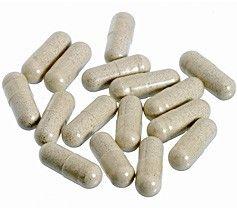Recognizing the Benefits and Uses of Fenbendazole in Veterinary Medicine
Fenbendazole has actually established itself as a vital anthelmintic in veterinary medication. Its capacity to target different parasitical infections makes it a valuable tool for veterinarians. The drug's device interrupts crucial cellular procedures in bloodsuckers, bring about reliable therapy outcomes. Nonetheless, its safety profile differs in between types, necessitating cautious consideration in its use. Comprehending these dynamics can lose light on fenbendazole's wider implications in veterinary care and ongoing research right into its prospective past standard applications
Mechanism of Action of Fenbendazole

Usual Parasitic Infections Dealt With With Fenbendazole
A range of parasitical infections are successfully treated with fenbendazole, making it a flexible alternative in veterinary medicine. This anthelmintic agent is specifically efficient versus nematodes, including roundworms and hookworms, which frequently affect canines and pet cats. It is also utilized for the treatment of cestodes, such as tapeworms, offering a broad spectrum of action versus both kinds of digestive tract parasites. In addition, fenbendazole is valuable in taking care of infections triggered by protozoa, especially Giardia, which can result in gastrointestinal distress in pets. Its effectiveness prolongs to treating particular lungworms in pooches and felines, dealing with respiratory health problems connected to these bloodsuckers. On the whole, fenbendazole's capacity to target several parasitic types makes it a useful tool in vet practice, guaranteeing the health and wellness and well-being of pets influenced by these typical infections.
Security and Effectiveness in Various Animal Types
The safety and security and effectiveness of fenbendazole vary among different animal varieties, underscoring the importance of species-specific factors to consider in vet medicine. In dogs, fenbendazole is normally well-tolerated and effective against an array of intestinal parasites, including roundworms and hookworms. For felines, however, its usage is much less typical and might require mindful application as a result of potential negative reactions.
In livestock, such as livestock and lamb, fenbendazole shows effectiveness against different endoparasites, contributing to improved health and efficiency. Nonetheless, the pharmacokinetics and possible adverse effects can vary markedly between species, requiring mindful examination by vets.
Equines also respond positively to fenbendazole, specifically for treating strongyles and ascarids, though dosage and administration paths have to be tailored to their unique physiology. Understanding these distinctions is crucial for optimizing treatment results and ensuring pet well-being throughout diverse varieties.
Administration and Dose Standards
Proper management and dose guidelines are essential for making the most of the healing impacts of fenbendazole while minimizing prospective side impacts. The dosage commonly differs depending on the types being dealt with, the details problem, and the formula of fenbendazole used. fenbendazole capsules. For pets and cats, an usual dose is 50 mg/kg body weight, administered daily for three consecutive days, but veterinarians might change this based upon specific wellness analyses
It is very important to carry out fenbendazole with food to enhance absorption and decrease stomach upset. The drug is available in various kinds, consisting of granules and paste, allowing for flexible administration choices. Checking the animal's action throughout and after therapy is recommended to verify effectiveness and security. Additionally, vet support is crucial to identify the appropriate period of treatment based upon the type of parasitic infection being dealt with, ensuring suitable results for the animal's wellness.
Future Viewpoints and Research on Fenbendazole
Study on fenbendazole remains to develop, concentrating on its potential applications past typical antiparasitic uses. Recent researches have explored its effectiveness in treating different forms of cancer cells, specifically in vet oncology. Preliminary information recommend that fenbendazole may hinder the development of growth cells and boost the effects of various other chemotherapeutic agents.
In addition, scientists are investigating its function in handling food poisonings in animals, highlighting its anti-inflammatory residential properties. The flexibility of fenbendazole for different varieties questions regarding its safety profiles and optimal dosing routines in varied populations.
As interest grows, there is a demand for thorough clinical tests to develop evidence-based guidelines for fenbendazole 222 these unique applications. Future study might also check out the devices behind fenbendazole's impacts, potentially leading the means for cutting-edge healing techniques in vet medication. The continuous exploration of fenbendazole could considerably boost therapy alternatives for numerous vet conditions.

Frequently Asked Questions
Is Fenbendazole Safe for Pregnant Animals?
The safety and security of fenbendazole for pregnant pets continues to be uncertain. While some researches recommend minimal danger, vets typically recommend caution and often suggest against its usage during maternity unless the advantages plainly outweigh prospective risks.
Can Fenbendazole Be Used in Animals?
Fenbendazole is frequently used in livestock to treat numerous parasitical infections. fenbendazole. Its effectiveness versus stomach worms makes it an important anthelmintic, adding to improved wellness and efficiency in animals increased for food and fiber
What Are the Adverse Effects of Fenbendazole?

The side impacts of fenbendazole may consist of stomach disruptions, sleepiness, and sensitive reactions. In uncommon cases, extra extreme reactions can occur, demanding cautious tracking and assessment with a veterinarian throughout therapy.
Exactly How Does Fenbendazole Contrast to Various Other Dewormers?
Fenbendazole provides broad-spectrum efficiency against numerous parasites, often comparing favorably to other dewormers. Its unique system targets various life stages, making it efficient, while generally presenting a desirable safety and security profile compared to options offered on the marketplace.
Can Fenbendazole Be Used for Treating Cancer in Pet Dogs?
The capacity of fenbendazole in treating cancer cells in animals has actually amassed passion. Preliminary studies suggest it may hinder cancer cells cell development, yet better research is required to verify its efficacy and safety and security in veterinary oncology.